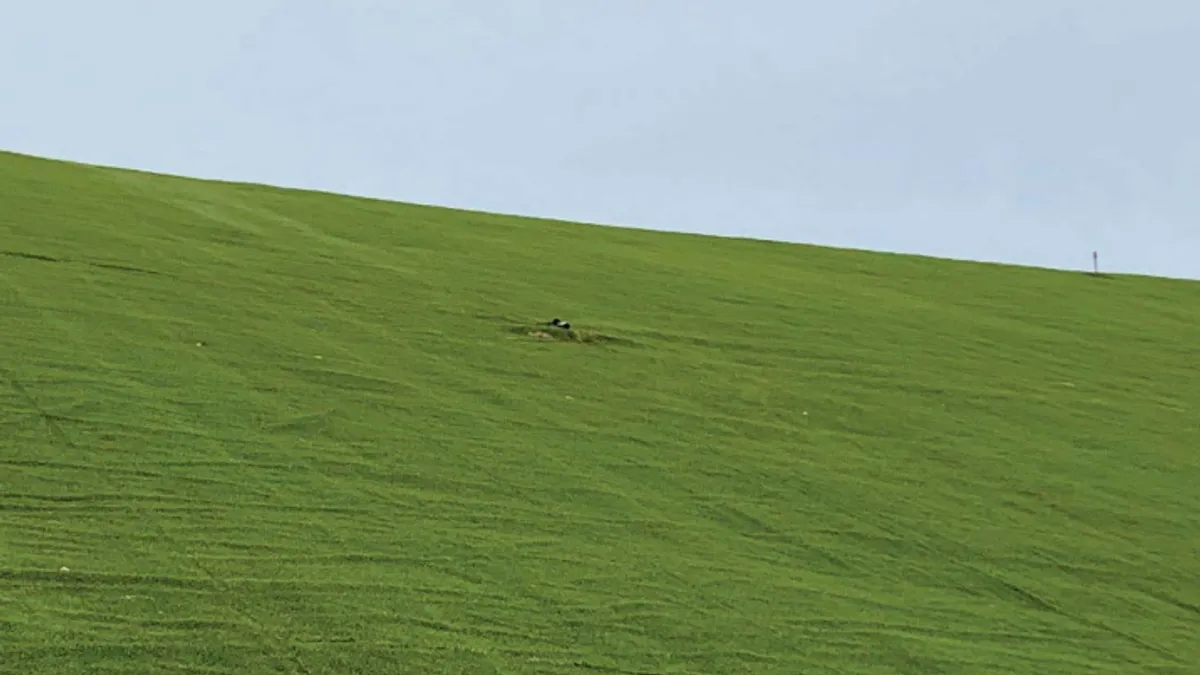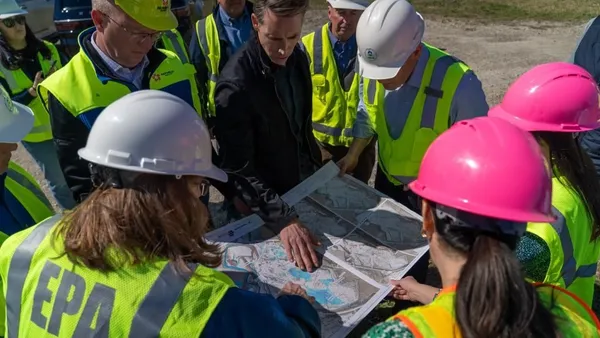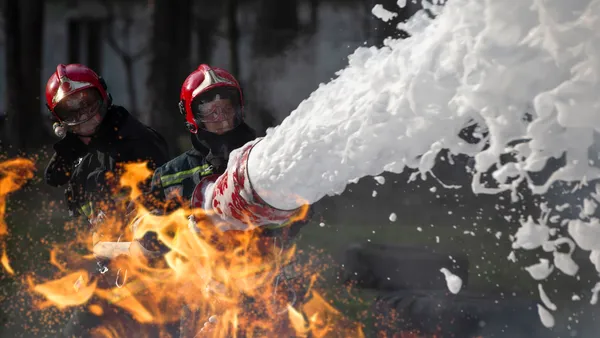Dive Brief:
- An attempt by LRS to acquire and reopen the publicly-owned landfill North Arkansas Board of Regional Sanitation has been stalled by opposition from residents of Baxter County, where the 698-acre landfill is located.
- That opposition caught the attention of state legislators, who passed a bill on an emergency basis creating new restrictions for the sale of closed landfills that use state funding for post-closure remediation, like NABORS. Gov. Sarah Huckabee Sanders signed the bill into law on April 13, which appears likely to place new restrictions on the sale but hasn’t stopped the process.
- The mayor of Mountain Home, Arkansas, the seat of Baxter County, attempted to halt the sale of the facility by the Ozark Mountain Solid Waste District at a recent meeting. The district’s attorney criticized the proposal from Mayor Hillrey Adams, saying it would open OMSWD to litigation from LRS, prompting Adams to say he would tweak his proposal and return.
Dive Insight:
Local officials on the OMSWD board remain locked in a debate over the future of the currently-closed NABORS landfill, located in an unincorporated area known as Three Brothers.
The NABORS landfill closed in 2012 after the OMSWD defaulted on the bonds it had used to acquire the landfill several years earlier.
In the years since, the state has ordered OMSWD to pay for costly environmental remediation at the shuttered site. To regain control of its finances, OMSWD has been entertaining an offer from Illinois-based LRS to purchase the landfill in June, according to the Baxter Bulletin.
The two sides came to an agreement for the sale of the landfill last fall pending due diligence from LRS, but the sale of the landfill was reportedly delayed in part because the Arkansas Department of Energy & Environment had not provided paperwork. The sale was further thrown into doubt by a ruling from the Baxter County Quorum Court prohibiting the reopening of landfills in the county, which would include the NABORS landfill.
LRS did not respond to a recent request for comment. The company has faced criticism for months over its plans to reopen the landfill and its assertions that the landfill does not lie on topography prone to leachate issues.
Meanwhile, new regulations signed into law last month require administrators of landfills that have previously drawn from the state’s Landfill Post-Closure Trust Fund to fully reimburse those funds, obtain a certificate of need to reopen the landfill and hold at least one public hearing prior to reopening. The law is a “significant obstacle” to the sale of the NABORS landfill and other sites like it, according to Richard Mays, an attorney who represents opponents of NABORS’ reopening.
In a March editorial penned for the Baxter Bulletin, LRS South Senior Vice President Rusty Janssen said that the private company could do a better job of managing the site than public authorities, as it would assume all environmental liability and spend the millions necessary to install superior gas evacuation systems and replace the landfill’s cover at regular intervals.
“Despite the claims of many local politicians, LRS is not the enemy. Far from it — we are the solution and an environmental advocate!” Janssen wrote.
Steve Blumreich, president of the Friends of the North Fork and White Rivers group, said he thinks Janssen and LRS are walking into a bad business decision.
He noted that LRS would be expected to pay the $13 million spent by the Arkansas Department of Energy & Environment to close the landfill currently owed by OMSWD, in addition to the continued costs of leachate monitoring and environmental remediation.
“It’s not a small matter and for any company to try to reopen it is going to be a nightmare,” Blumreich said.
The area is still facing environmental issues that would be exacerbated by a reopened landfill, Blumreich said. An analysis of groundwater samples from the landfill site reported by the state found that levels of arsenic, cadmium and vinyl chloride all exceeded maximum contaminant limits set by the U.S. EPA.
The landfill lies near creeks that feed into the Bull Shoals and Norfork lakes, two recreational sites that are a key economic driver for the tourism economy in a rural part of the state. Blumreich said any threat to the water systems in the area would be a threat to the community as a whole.
“If you’re a golfer you could hit a nine-iron from the top of that landfill to where those feeder creeks start. It is an incredible environmental threat,” Blumreich said. “To reopen it just makes no sense, that’s why there has been such an incredible public backlash on this.”
LRS previously expanded into Arkansas with the 2021 acquisitions of assets from Orion Waste Solutions and RAMCO-Alternative Waste Management, including a C&D landfill. The private equity-backed company further expanded its presence in the state with hauling acquisitions in August and December last year.















